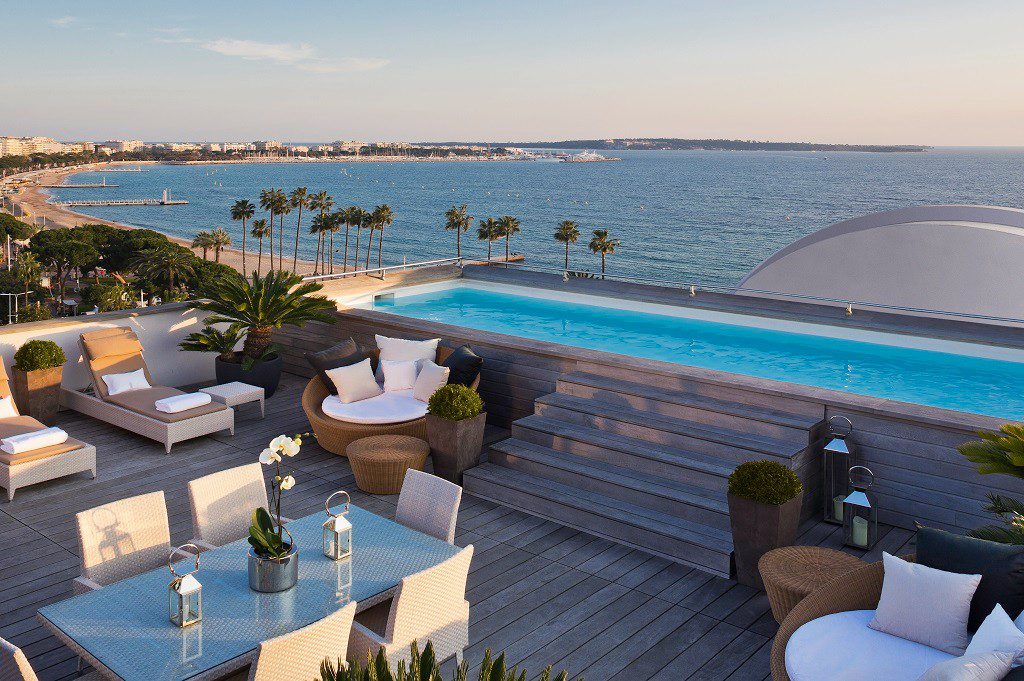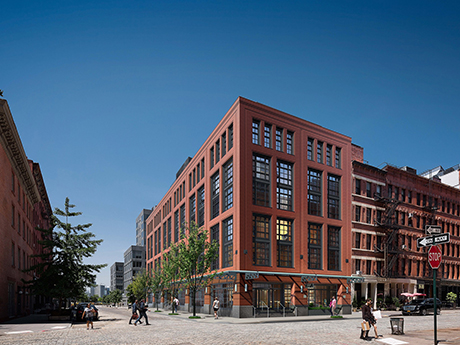DISCIPLINED LUXURY LODGING BRANDS MAY GAIN
Not every brand will be well-positioned to take advantage of a surge in demand. Yet some experts see a long-term future where domestic leisure luxury travel anticipates a worldwide sector recovery that savvy hoteliers and resort owners can capture.
“The high-end tranche of the market just keeps growing long term,” said Joshua Caspi, principal at Caspi Development. “But it’s truly an art to run your operations to support the five-star experience while driving out unnecessary expenses.”
A case in point: Caspi Development plans next year to open the first U.S. outpost of the Paris-based Hotel Barrière Le Fouquet brand in Tribeca, New York. Workers had to dig 28 feet below the Hudson River to build a spa with an “aqua trail pool,” meaning a circuit of jetted water and steam rooms, and a separate, underground 100-seat screening room for movies.

The pool at Hôtel Barrière Le Majestic Cannes in the south of France. Source: Hôtel Barrière
Ownership structures can also make profitability more elusive.
“When you look at the five-star brands internationally, there’s a wide array of brand missions,” Caspi said. “Some brands are all about top-line revenue growth and their top-line fee base for operations. So revenue share is very low in those scenarios.”
“It’s rare to push room revenue up from, say, a 20 percent range of revenue share and push up into the 30s,” said Caspi.
But despite the need for operational smarts, there are many favorable winds for luxury travel.
“It certainly seems like many would want a less dense setting, with higher standards, and greater capability to manage the unexpected — perhaps as a substitute for what would have been an international trip,” said Aran Ryan, director, lodging analytics at Tourism Economics, a consultancy that’s part of Oxford Economics.
“Plus, the chance to have a real reward after all this craziness,” Ryan said.

